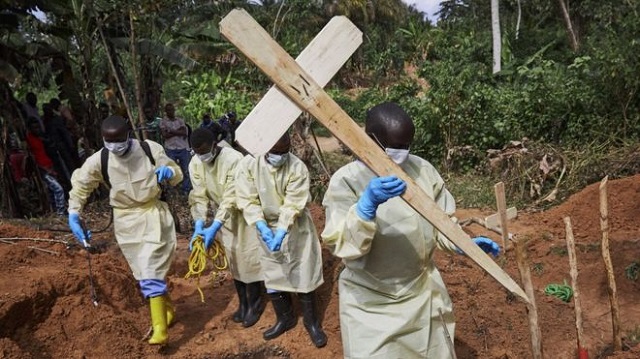
Kampala, Uganda | THE INDEPENDENT | Security measures for staff helping to fight health emergencies need to be stepped up urgently, a World Health Organisation Official has said, after a frontline Ebola epidemic community worker was reportedly stabbed to death at his home in northeast Democratic Republic of the Congo (DRC).
The victim, who has not been officially named, also worked as a reporter at a community radio station in Lwemba. His partner was critically injured, suffering multiple wounds, during the attack, according to a statement issued on Monday by the DRC Ministry of Health.
Dr Mike Ryan, the Director of WHO’s Health Emergencies Programme, said that in his 25-year humanitarian career, violence carried out deliberately against health workers and hospitals had never been so bad.
Despite the risks of working in insecure locations, one doesn’t really have a choice but to go, as the epidemic will continue to spread and intensify like fire if it’s not put out”, he said. “It does put our workers at the extreme edge of risk.”
He added that two suspects have been arrested and the investigators are looking to see whether the murder is linked to the ongoing Ebola response.
The WHO has documented more than 300 attacks on health care facilities in DRC that have resulted in six deaths and 70 injuries of workers and patients, since 1 January.
Dr Ryan also expressed sympathies for the families of three UN Migration Agency (IOM) workers killed eight days ago near an Ebola screening point on South Sudan’s border with DRC last Wednesday. According to IOM, its staff were caught in the crossfire during clashes between armed groups in Morobo County, in South Sudan’s Central Equatorial region.
A volunteer worker and a child were also abducted during the incident, prompting an appeal for their immediate and unconditional release by the agency, which on Monday said that it had no new information about the case.
Welcoming continuing financial support among the Member States including the Netherlands, Norway, Switzerland and the United States for frontline staff to operate with added security measures, Dr Ryan stressed too that the humanitarian community could do more to protect them.
The current Ebola outbreak, began in DRC last August, and is the most lethal in the nation’s history, although recent progress has seen cases fall. The virus has claimed more than 2,180 lives; more than 1,050 people have survived.
******
URN
 The Independent Uganda: You get the Truth we Pay the Price
The Independent Uganda: You get the Truth we Pay the Price





